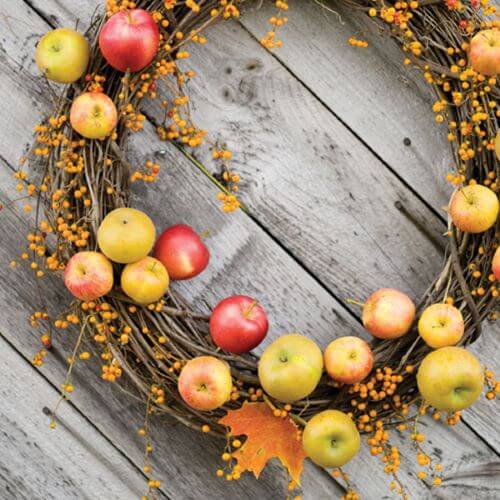Benefits of Using Vinegar for Plants

You may or may not know, but vinegar has outstanding benefits for indoor and outdoor plants, and we’re going to tell you what they are! If you love nature and want to discover more sustainable gardening techniques, learning about the outstanding benefits of vinegar will help you when it comes to plant care.
When you finish reading this article, you’ll be able to use this simple product to eliminate pests, and nuisances and help your plants to become healthier and stronger. Intrigued? Keep reading to learn more!
Benefits of vinegar for plants
Since time immemorial, people have used vinegar for so many different purposes. In fact, our grandmothers were among the first generation to talk about its benefits on both indoor and outdoor plants. Next, we’re going to tell you in detail about the most outstanding ones. Take note!

1. Vinegar prevents mold on plants
Vinegar has antifungal properties, making it the ideal ally for preventing and controlling mold on indoor and outdoor plants. This liquid contains acetic, tartaric, and citric acid. It’s thanks to this that you can eliminate mold, which threatens the well-being of all your plants.
To use it, dilute two tablespoons of vinegar in a container with three liters of water. Shake the mixture and place it in a spray bottle. Then, simply spray any plants that are at risk.
2. Benefits of vinegar for plants: enriching the substrate
Use vinegar to add a little iron to the substrate or soil where your plants grow. To do this, simply pour some pure vinegar directly onto the soil.
However, you must be careful because an excess of neat vinegar can actually damage your plants. Remember, some plants won’t develop or perform well in acidic soils.
3. Vinegar can contribute to germination
When you’ve planted new seeds, use a little vinegar to soften the outer shell. This will encourage germination and it’s easy to do.
Add water to a bowl and mix around five to eight drops of white vinegar. Then, add the seeds and let them soak overnight. After you’ve planted them, you’ll notice that they germinate faster. Equally, they’ll be healthier too!
4. Vinegar regulates pH balance
Being an acidic liquid, vinegar helps to regulate the soil pH and provides them with well-being and more potential for healthy growth.
To do this, add a tablespoon of vinegar to a liter of water and pour it directly into the plant pots or onto the soil. Acidophilic plants such as hydrangeas and gardenias will benefit the most from this mixture. This is because as their name suggests, they need acidic substrates to grow.
5. Use vinegar to clean vases and plant pots too!

Glass vases and pots are often affected by the lime that’s present in water. This causes them to develop annoying white lines or watermarks that are quite ugly.
To solve this issue, take a clean cloth and sprinkle a few drops of vinegar on it. Then use the cloth to wipe over the white marks and you’ll soon see how they disappear with ease. As you can see, it’s not only plants who can enjoy the benefits of vinegar.
6. Use vinegar to make your flowers last longer
Considering that vinegar has extensive benefits for your plants when you use it on cut flowers, it’ll help to make them last longer and flourish.
This product will keep pests, bacteria, and other harmful organisms away. If you want to make it really effective, mix two tablespoons of white vinegar with one tablespoon of sugar in a container of water. Add the mixture to the vase and enjoy your flowers for even longer!
7. Vinegar is a great herbicide
Among the most outstanding benefits of vinegar are its herbicide, fungicide, and repellent abilities. It’s renowned for eliminating the insects that plague plants
Use one part vinegar to two parts water and spray the leaves of your plants to keep them pest-free. How often you use it, will depend on the level of infestation.
8. Keep pets away from your plants
The relationship between pets and plants is often contentious. The ideal situation is that pets and plants live in harmony without pets digging them up!
Vinegar will be your best ally if this situation is familiar. Soak a couple of cloths in vinegar and leave them near your plants, pots, and soil. You’ll soon notice how dogs and cats will avoid them. This means that your plants will be safe and you’ll keep calm!
Which of these benefits of vinegar for plants did you like?
As you’ve discovered, the benefits of vinegar for plants are many and cover different aspects that guarantee their general well-being. Now that you know what they are, avoid using chemicals. These can ultimately damage plants and pollute our environment. Choose vinegar instead!
All cited sources were thoroughly reviewed by our team to ensure their quality, reliability, currency, and validity. The bibliography of this article was considered reliable and of academic or scientific accuracy.
- N.W. Osorio. pH DEL SUELO Y DISPONIBILIDAD DE NUTRIENTES. Manejo Integral del Suelo y Nutrición Vegetal, Vol. 1 No. 4








